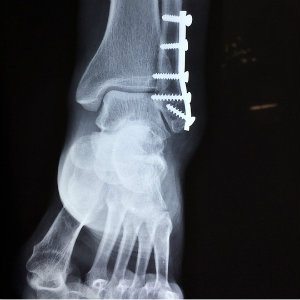Are you unsure how you'll support yourself after a workplace injury? You may have concerns like:
We can help answer your questions and plan for your injury recovery in a free initial consultation.
Our seasoned work injury lawyers have experience helping injured New York workers of all types recover the financial compensation they deserve.
No one wants to be sidelined and unable to work with a job-related injury or illness. Being out of work is extremely stressful. You may be suffering from serious pain and wondering how you'll keep up with your rent or mortgage, pay your monthly bills, and handle new medical expenses when you don't have a paycheck coming in.
Fortunately, workers' compensation is available for all types of work-related injuries and occupational illnesses, including:
However, many injured workers find the process much more complicated than they'd anticipated. Employers and insurance companies often look for reasons to deny claims. Because of the complex nature of the process, it's often necessary to have the guidance of an experienced work injury lawyer to help you get the benefits you need and deserve.
Any injury or illness which requires you to miss a week or more of work qualifies for workers' compensation. This applies both for sudden workplace injuries (such as a broken bone suffered in a slip and fall) and also repetitive motion injuries and musculoskeletal disorders which slowly build up over time due to certain work duties. Occupational illnesses like hearing loss or mesothelioma are also eligible for benefits.
Some of the most common injuries and illnesses which require time off from work include:
In some work environments, employees are regularly exposed to potentially hazardous noise levels. While wearing the proper protective equipment can help limit the damage, it's common for hearing problems to develop over the years. Occupations which require the use of power tools, heavy machinery, or music and sound equipment are all at a high risk of developing occupational hearing loss.
Work-related hearing loss and other occupational illnesses qualify for the same workers' compensation benefits as any other work-related injury. If you work in a loud environment and you've noticed that your hearing has deteriorated, you should consider speaking with a doctor and possibly filing a claim for workers' compensation.

A broken bone requires medical treatment, rest, and limiting stress or pressure on the affected area. For many workers, it's difficult to impossible to work with a broken bone. A big part of your recovery is taking it easy and giving your bone a chance to heal.
Work-related accidents which could result in a broken bone include:
Work environments which involve the use of chemicals, hazardous substances, power tools, or industrial equipment all have potential eye injury hazards. Eye injuries are some of the most common workplace injuries, accounting for roughly 700,000 injuries each year. Goggles and protective eye gear can help prevent the vast majority of workplace eye injuries.
Shoulder injuries can occur in virtually any workplace. These may happen in the form of a sprain or strain in a workplace accident or they can build up slowly over time due to repetitive stress. Occupational risk factors for shoulder injuries include:
Muscle and nerve injuries may occur in workplace accidents or slowly accumulate over time due to repeating the same motions over and over again. These conditions often start out with relatively minor symptoms, but grow more severe with time.
Work conditions which frequently lead to muscle and nerve injuries include:
Some specific examples of muscle and nerve injuries include:
If you've been dealing with nagging muscle or nerve pain, weakness, or numbness, you should consider meeting with your doctor and ask him or her if your condition could be work-related.
Carpal tunnel syndrome is a repetitive stress injury which involves pain, weakness, and numbness in your wrists, hands, and fingers. This commonly occurs in office workers who spend their weeks using computers. Symptoms may be minor at first and take time to develop, but can quickly become extremely painful and debilitating.

Over time, movements which put stress on certain body parts can gradually cause injuries to build up in those body parts. In order to receive workers' compensation for a repetitive motion injury, you must prove that the injury occurred because of your work duties. This can be difficult, but an experienced work injury lawyer can help you gather what you need and guide you through the claims process.
Examples of common work-related repetitive motion injuries include:
Work-related knee injuries can either occur as acute injuries (such as breaks and sprains) in workplace accidents or as repetitive stress injuries which gradually build up due to overuse of your knee joints. These injuries are fairly common, accounting for 100,000 workplace injuries in 2015. Employees with knee injuries are forced to miss a median of 16 days from work.
Neck injuries can occur in all types of workplaces. They're either caused by overuse, everyday wear and tear, or they may occur due to trauma in a workplace accident.
Common symptoms of a neck injury include:
Burn injuries often require several forms of treatment and recoveries can be long and painful. Many victims of workplace burn injuries require extended time off to heal, while others may have their ability to work permanently impaired. These injuries often lead to permanent scarring and disfigurement, and those who are scarred or disfigured may be eligible for additional benefits through workers' compensation and possibly Social Security Disability.
Victims of work-related amputations have their lives changed forever. These workers often have to completely adjust their lifestyle after losing a limb. Many may not be able to return to their previous job duties or be completely unable to work at all.
In addition to the same workers' comp benefits as other less severe injuries, workers who partially or fully lose the use of a body part may be entitled to specific loss benefits.
Employees in construction and manufacturing are at the highest risk of being involved in a workplace accident which requires amputation.
In most cases, it would be wise to at least meet with a lawyer for a free initial consultation. While some workplace injury cases may be cut and dried, many others are much more complicated. Even workers whose injury claims seem straightforward run into difficulties when attempting to claim their benefits.
A lawyer can help you gather everything you need for a successful claim and can negotiate with your employer's insurance carrier on your behalf. Many injured workers don't have the resources of knowledge of the system to fight for benefits on their own. Additionally, insurance companies are much more likely to approve your initial claim if you have a respected lawyer by your side.